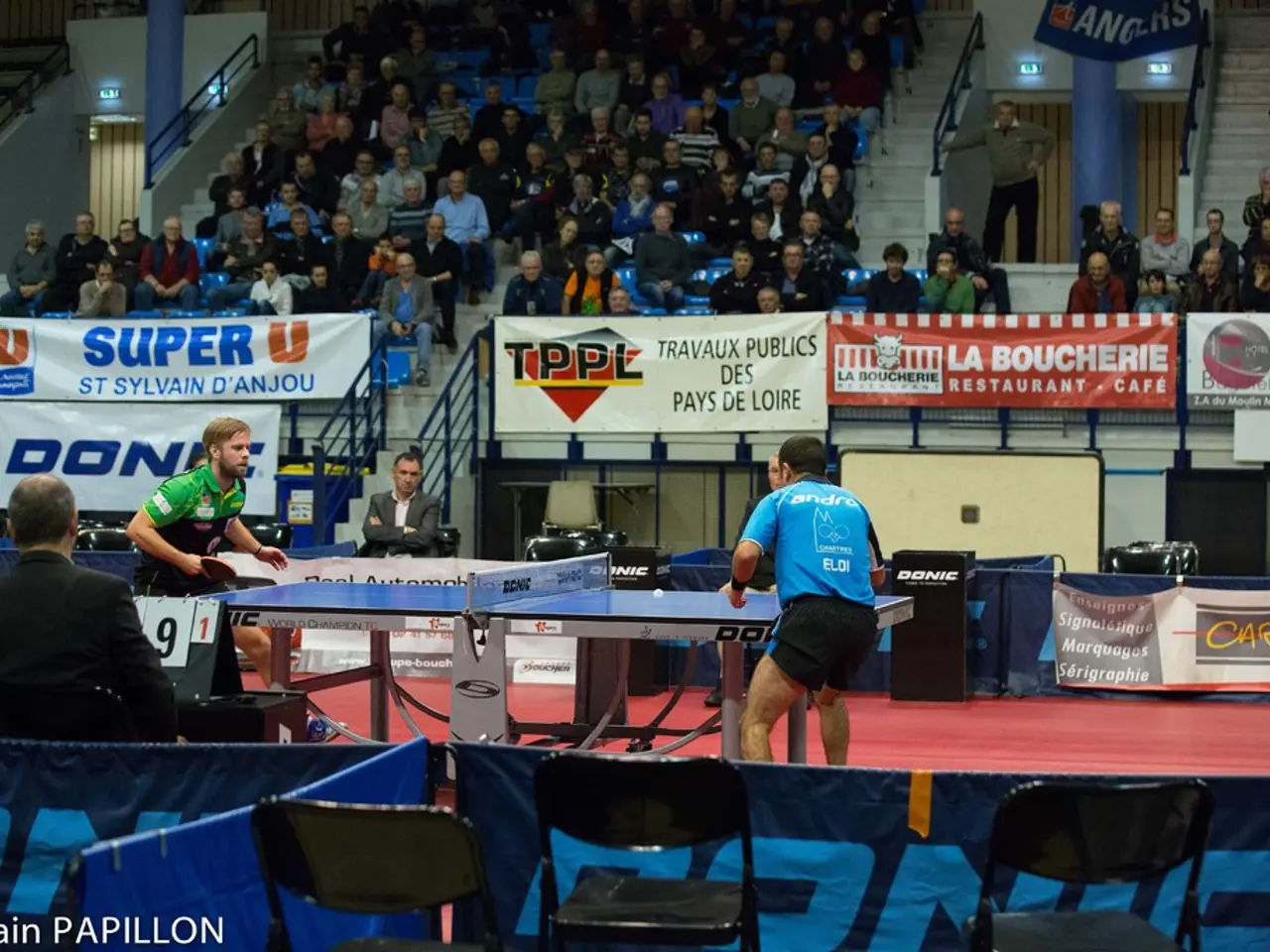Meta Founder Mark Zuckerberg unveils Meta Superintelligence Labs, a team comprising prominent AI experts recruited from OpenAI, Google, and DeepMind, with the goal of achieving breakthroughs in Artificial General Intelligence.
In the fiercely competitive world of artificial intelligence (AI), tech giants such as Meta, Google, OpenAI, Anthropic, and Microsoft are locked in a race to outpace one another. This competition is marked by substantial investments in AI infrastructure, talent acquisition, and data center expansion.
Meta, led by CEO Mark Zuckerberg, is making a significant push to regain momentum in this arena. The company has pledged a staggering **$65 billion** towards superintelligence, funding new data centers and launching an aggressive recruitment drive to attract the world's top AI researchers and engineers. This includes offering hundreds of millions of dollars and even acquiring startups to bolster its team[1][3].
The recent release of Meta's AI model, Llama 4, was met with disappointment and criticism, which seems to have spurred the company into action. Meta's strategy now focuses not just on compute and data, but also on securing top-tier AI talent, recognising the importance of human expertise in advancing AI systems[1].
The AI ecosystem requires substantial capital expenditure, with the top hyperscalers projected to spend around **$340 billion** on AI and data center infrastructure in 2025. Meta is one of several companies competing for reliable energy, rare metals, and advanced chip supplies essential for scaling AI[2].
Notable additions to Meta's AI team include Alexandr Wang, who is now serving as the CEO of Meta's new superintelligence lab and the Chief AI Officer for MSL[3]. Wang is joined by Nat Friedman, the former GitHub CEO, who is partnering with Wang to lead operations in Meta's new superintelligence lab. Trapit Bansal, who pioneered reinforcement learning on chain of thought and co-created the o-series models at OpenAI, is also joining Meta[3].
Other notable hires include Ji Lin, who helped build various models including GPT-4o, GPT-4.1, and GPT-4.5, and Huiwen Chang, who co-created GPT-4o's image generation. Shuchao Bi co-created GPT-4o's voice mode and o4-mini, while Shengjia Zhao co-created ChatGPT, GPT-4, and all mini models[3].
Meta is also recruiting a founding group for this small, talent-dense effort. The team is planning progress for Llama 4.1 and 4.2 models, and is starting research on the next generation of models, optimistic about the new influx of talent and parallel approach to model development[3].
In the ongoing AI race, Meta is playing catch-up, responding to competitive pressure by scaling investment, aggressively recruiting elite talent, and pushing new infrastructure projects. The company's strategy to close the gap involves both massive financial outlays and strategic talent acquisitions, aiming to compete with the likes of Google, OpenAI, and Microsoft, who continue to lead in AI innovation and deployment[1][3][2].
Sources: [1] VentureBeat (2023). Meta's AI race: Catching up with Google, OpenAI, and Microsoft. [Online]. Available: https://venturebeat.com/ai/meta-ai-race-catching-up-with-google-openai-and-microsoft/ [2] CNBC (2023). The AI arms race: How tech giants are spending billions to stay ahead. [Online]. Available: https://www.cnbc.com/2023/03/15/the-ai-arms-race-how-tech-giants-are-spending-billions-to-stay-ahead.html [3] The Information (2023). Meta poaches AI talent from rivals, invests $14.3 billion in Scale AI. [Online]. Available: https://www.theinformation.com/articles/meta-poaches-ai-talent-from-rivals-invests-143-billion-in-scale-ai
- Microsoft, with its vast resources and influence, is also actively participating in the AI race, investing significantly in AI infrastructure, talent acquisition, and data center expansion, like its competitors.
- The software giant has not only updated its Microsoft Office suite with AI-driven features but also expanded its presence in the field with the launch of Microsoft Teams, leveraging AI for better collaboration and productivity.
- On the technology front, Microsoft is continually refining its hybrid-cloud platform, Azure, to support the growing demands of AI applications, while fostering the development of AI in its Xbox gaming console through Project xCloud.
- Furthermore, Microsoft's commitment to AI extends beyond technology, as the company explores the ethics and responsible deployment of AI, collaborating with universities and research institutions to advance the understanding of artificial-intelligence.




